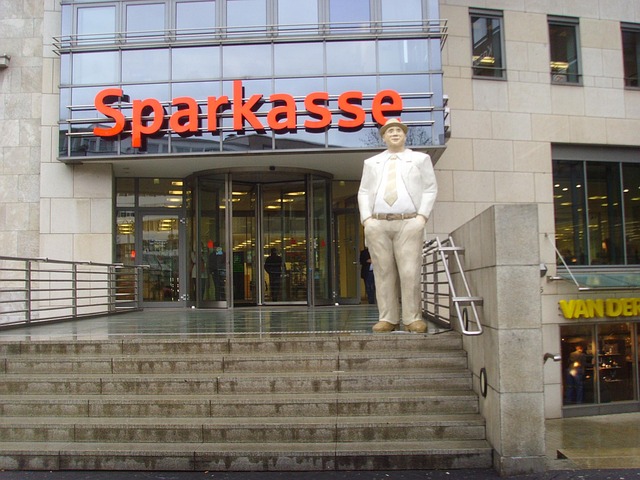Merchant Cash Advances (MCAs) provide a swift, revenue-based funding solution for businesses needing quick capital. Unlike traditional loans, MCAs require no collateral and focus on a company's sales volume rather than credit history, making them ideal for SMEs with limited or poor credit. Repayment is automated through a percentage of future credit card sales, aligning with cash flow cycles. MCAs offer a flexible alternative to fixed debt obligations, especially during seasonal fluctuations, but interest rates vary widely among providers.
In today’s fast-paced business landscape, quick access to capital is crucial for growth. Discover how merchant cash advances (MCAs) offer a dynamic alternative to traditional loans with revenue-based funding. This article breaks down the complexities of MCAs, explaining their simple application process and rapid funding. We explore the benefits, eligibility criteria, and comparisons to conventional financing. Read on to learn from real-world success stories and unlock fast funding for your business through MCAs.
- Understanding Merchant Cash Advances (MCA): An Overview
- How MCA Loans Work: A Simple Breakdown
- Benefits of Revenue-Based Funding for Businesses
- Eligibility Criteria and Application Process
- Comparing MCA to Traditional Loans
- Real-World Success Stories: Fast Funding in Action
Understanding Merchant Cash Advances (MCA): An Overview

Merchant Cash Advances (MCAs) offer a unique and swift funding solution for businesses, particularly those in need of quick cash to fuel their growth or manage immediate financial obligations. Unlike traditional loans that rely on collateral and strict credit checks, MCAs are non-traditional financing options based primarily on a business’s revenue streams and sales volume. This type of funding is ideal for companies with limited or poor credit history since it doesn’t involve the same rigorous underwriting process as bank loans.
In simple terms, an MCA involves a third-party lender providing funds to a business in exchange for a percentage of future credit card sales. The approval process is relatively quick, and businesses can access their funds within days. This funding method is particularly attractive for companies with consistent revenue but lack the collateral to secure traditional loans. It’s a flexible option that aligns with the cash flow of the business, making it a game-changer for many entrepreneurs seeking rapid financial support.
How MCA Loans Work: A Simple Breakdown

A Merchant Cash Advance (MCA) loan is a type of revenue-based funding that offers businesses a quick and accessible way to secure capital. Unlike traditional loans, MCA loans aren’t based on creditworthiness or complex financial assessments. Instead, they provide funds by taking a percentage of future sales as repayment. This innovative approach simplifies the borrowing process, making it an attractive option for small and medium-sized enterprises (SMEs) in need of immediate financial support.
Here’s how it works: Businesses apply for an MCA loan by presenting their sales history and future projections. Upon approval, a portion of their daily or weekly revenue is deposited into a business bank account, effectively providing them with instant working capital. Repayment occurs automatically through a small percentage deduction from each sale, ensuring that the debt is settled over time. This flexible funding model aligns perfectly with cash flow needs, especially for businesses experiencing seasonal fluctuations or rapid growth.
Benefits of Revenue-Based Funding for Businesses

Many businesses, especially small and medium-sized enterprises (SMEs), find themselves in need of quick funding to seize opportunities or overcome cash flow challenges. Traditional loan options often come with stringent eligibility criteria and lengthy approval processes. Here, a merchant cash advance (MCA) loan steps in as a viable alternative, offering several advantages tailored to the unique needs of businesses.
Revenue-based funding, such as MCAs, provides a flexible financing solution. Instead of securing loans against physical assets, businesses receive advances based on their future credit card sales revenue. This approach aligns perfectly with the cash flow nature of many retail and service industries. By aligning repayment with revenue generation, businesses can avoid burdening themselves with fixed debt obligations that might strain their finances during slow periods. This innovative funding method empowers entrepreneurs to focus on growth and expansion while managing cash flow effectively.
Eligibility Criteria and Application Process

Merchant Cash Advance (MCA) loans offer a unique and fast funding solution for businesses, especially those in need of immediate capital. The application process is straightforward and primarily based on a business’s revenue performance. Unlike traditional bank loans that rely heavily on credit scores, MCA lenders focus on assessing a company’s cash flow and sales volume. This makes it accessible to a broader range of businesses, including startups or those with less-than-perfect credit histories.
Eligibility criteria typically include having a minimum monthly revenue and a steady sales track record. Lenders will review a business’s financial statements and banking records to gauge its stability and potential for growth. The application usually involves submitting basic business information, recent financial data, and sometimes, personal guaranties. Once approved, funds can be advanced quickly, often within days, providing businesses with the liquidity they need to seize opportunities or manage cash flow challenges.
Comparing MCA to Traditional Loans

When considering fast funding options, many business owners often find themselves weighing the pros and cons of a merchant cash advance (MCA) against traditional loans. One key difference lies in how each option structures repayment. With an MCA, repayment is typically tied to a percentage of your daily credit card sales, making it a form of revenue-based funding that adapts to your cash flow. This can be particularly advantageous for businesses with seasonal fluctuations or irregular income streams, as the repayment amount adjusts accordingly.
Traditional loans, on the other hand, often require fixed monthly payments, regardless of your business’s performance. While this offers predictability, it might put a strain on cash flow during slow periods. MCAs offer speed and convenience in approval and funding, making them an attractive choice for businesses needing quick access to capital. However, interest rates can vary widely between providers, so thorough comparison is essential before securing an MCA loan.
Real-World Success Stories: Fast Funding in Action

Small businesses often face cash flow challenges, but real-world success stories prove that a merchant cash advance (MCA) loan can be a game-changer. This alternative funding method provides revenue-based funding, allowing entrepreneurs to access quick capital by using future credit card sales as collateral.
For instance, a local café owner struggled with seasonal fluctuations, making it hard to cover expenses during slower months. They turned to an MCA and received funds almost instantly, enabling them to manage cash flow effectively. As their business picked up during peak seasons, the loan was paid off without hassle, leaving them with improved financial flexibility. This success story highlights how MCA loans can provide a reliable safety net for businesses facing temporary financial strains, helping them focus on growth and expansion.














